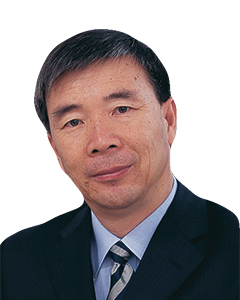While the internet industry has grown quickly in recent years, the law has not kept pace. As a result, gaps and ambiguities have appeared. Last year saw a succession of disputes between the large internet service providers in the PRC. Those that attracted the most attention were the “3Q war” (the dispute between Qihoo 360 and Tencent QQ), the unfair competition suit by Kingsoft against 360, and the unfair competition suit by Baidu against 360. These disputes prompted government authorities and industry associations to accelerate the formulation of new rules and regulations. On 12 January, the Ministry of Industry and Information Technology (MIIT) issued the Regulation and Supervision of the Order of the Internet Information Services Market Interim Measures (Draft for Comment).
Unfair competition

Executive Partner
Run Ming Law Office
Article 6 of the Measures provides that the following acts by an internet information service provider constitute acts of unfair competition:
(1) fabricating and disseminating untruths, or maliciously denigrating the lawful products or services provided by a competitor, thereby harming that competitor’s good name or the reputation of its merchandise;
(2) deliberately ensuring incompatibility with lawful products or services provided by another business operator without a valid reason; or, when there is existing incompatibility, or incompatibility for reasons beyond its control, failing to give users clear and objective warnings, or deceiving or inducing users into making a choice;
(3) interfering with the provision of lawful products or services by another business operator, or altering the contents of such products or services, or intercepting information on such products or services at the user end;
(4) using any other method to mislead, deceive or coerce users into uninstalling or closing other lawful products or services; or
(5) committing any other act that runs counter to fair competition.
Before the Measures appeared, acts listed above such as forcing the deletion or non-use of competitors’ software, or interfering with the normal operation of competitors’ software, could only be countered by the principles set out in article 2 of the PRC Anti-unfair Competition Law. Once the Measures are formally passed, the MIIT will have a more solid legal basis for regulating competition on the internet.
Online police

Lawyer
Run Ming Law Office
Article 7 of the Measures specifies that “if an internet information service provider has an objection in respect of matters such as the safety, privacy protection or quality of a product or service provided by another internet information service provider, it shall submit its objection to an official authority for assessment, and may not itself conduct an assessment or issue the results of an
assessment.”
Clearly, providers of internet security products serve, to some extent, as the “guardians” of internet users, providing as they do such services as virus prevention, Trojan horse detection and elimination, malicious add-on warnings and the blocking of popup advertisements. However, in performing these functions, conflicts with other internet service providers are sure to arise. One example is the dispute between 360 and Tencent over 360’s virus scan software, Koukou Bodyguard. When 360 discovered that Tencent’s QQ software could infringe users’ privacy, its software made this known to users directly and gave them the option of taking further action. Some in the industry are of the opinion that 360, in so doing, garnered wide support from users, but 360 is not a government authority or an authoritative body of the state and, as such, does not have the authority to “try” Tencent in its self-appointed capacity as “online policeman”. Article 7 of the Measures provides clear guidance to internet information providers on how to deal with such disputes.
Rights and interests of users
How to protect internet users in the midst of cutthroat competition is a hot topic in the industry. Articles 8 to 14 of the Measures constrain the acts of internet information service providers in the following ways so as to protect the rights and interests of users:
prohibited acts: an internet information service provider may not unilaterally refuse, delay or suspend service; limit or restrict users to designated services; deceive or induce users into accepting unfair terms or selecting specific services; or commit any other act that infringes users’ right to know or right to choose (article 8);
obligation to notify users of user-end operations: when an internet information service provider needs to conduct such operations at the user end as the installation, operation, upgrading or removal of software, it is required to notify the user and secure the user’s consent. Certain operations that an internet information service provider may not conduct at the user end are also listed (article 9);
obligation to notify of the bundling of other software with client software (article 10);
when an advertisement or other information window pops up at the user end, the user should be shown a clear icon that allows him or her to close or exit from the window, and another window with identical content may not pop up again (article 11);
obligation to respect users’ privacy and to protect user information: an internet information service provider may not collect user information without the express consent of the user; it must maintain the confidentiality of user information in accordance with the law; it must keep user data secure and ensure users have the right to revise and delete data that they themselves have provided (articles 12 to 14).
The Measures also provide a means of resolving disputes between internet information service providers, requiring the parties to resolve any disputes through consultation, mediation by the industry organization, government coordination and judicial proceedings, without harming the lawful rights and interests of users. They may not maliciously slander competitors.
When formally issued and implemented, the Measures should help to calm the bitter disputes between internet companies and will further regulate competition on the internet.
Wang Yadong is executive partner, and Helen Wu is a lawyer, at Run Ming Law Office
Suite 1806, NCI Tower
12A Jianguomenwai Avenue
Chaoyang District, Beijing 100022, China
Tel: +8610 65693511
Fax: +8610 65693512/13
www.runminglaw.com
E-mail:
wangyd@runminglaw.com
wuhy@runminglaw.com






















